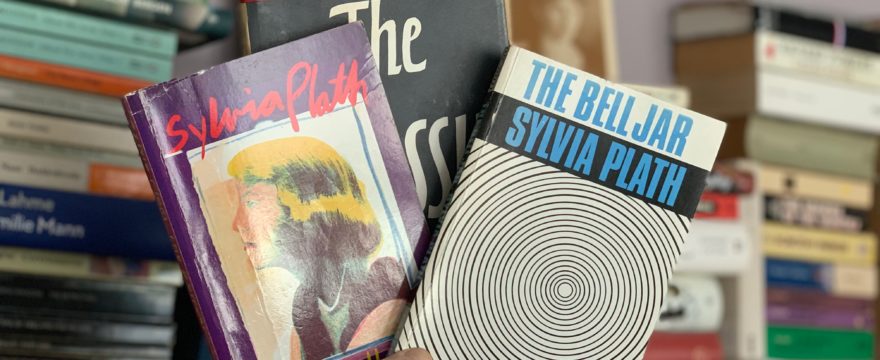Sylvia Plath is an old, old love of mine. I discovered her quite by accident deep into the previous century (:)) when only a smattering of devotees – at least in the Low Countries – knew who she was or had read her work.
That has changed drastically over the past 25 years: Sylvia Plath is now a household name. Thousands of books and articles have been written about her private life and her work.
Odd, when you know that she died in 1963 at age 30, with only 2 (!) published books to her name: “The Colossus” (a volume of poetry) and “The Bell Jar” (her first novel, released under the pseudonym Victoria Lucas a few months before her suicide).
The rest of the (still: slim) body of work was published posthumously. Or not: some writings have reportedly been destroyed by Ted Hughes, the husband she was estranged from at the time).
The easiest introduction to Plath, in my opinion, is and remains the novel “The Bell Jar”. It is a fictionalized account of a year in her life, leading up to her first mental breakdown, suicide attempt and slow recovery.
It is – unbelievably – quite humorous in a wry, “Plathian” kind of way. If this sounds all rather heavy-handed: it’s also a ripping read. Plath has a knack of making you smile, even when there is not much to smile about.
I have several editions of this novel, in various states of ‘tattered’ness. There’s the paperback which I got as a student (I wrote a thesis on Plath) with a picture of her on the cover, done over with a pop-art effect.
I also have an old Faber paperback with the artwork of which captures the central idea better than any other cover I’ve seen since. What I don’t have, and never will, is a signed first: there are only a handful of those on the market. Plath’s own – signed – copy was auctioned off for 87.500 £ in 2018.
This novel comes highly recommended, but it is hard for me to pinpoint why exactly. Every book that I truly admire has these two traits though: it manages to be deeply tragical and comical at the same time, and it reveals something new – something that eluded you before – every single time you read it. It stays fresh and urgent, no matter when it was written.
In your life, when you’re lucky, you’ll come across only a handful of books that will jolt you out of whatever rut you find yourself in. For me, The Bell Jar was one of those books.
